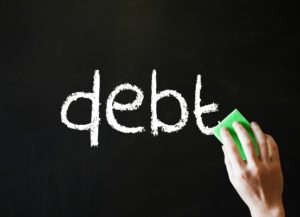
With high-interest rates, it can seem almost impossible to become debt free. Between the mounds of consolidated interest and bills that need to be paid, debt consolidation sometimes appears to be the only option. Consider the following when researching possible restructuring programs so you don’t fall for these debt consolidation traps.
4 Debt Consolidation Traps to Avoid Like the Plague
Trap #1: High-Interest Rates
Some for-profit debt consolidation companies will offer you a low-interest rate that rivals the current one you’re paying, but others will try to sneak in a higher interest rate with a lower monthly payment. This means you’ll be paying less each month but have a longer repayment plan.
In the end, you could be giving them more money than if you managed your own debt. Keep an eye on the total amount repaid and interest rates. If the rate seems high, shop around and consider another option.
Trap #2: Lots of Fees
Before you sign anything, make sure you get a list of any fees the debt consolidation company is charging you. These tend to be items that are skipped over as they get you to sign on the dotted line, and it’s how they make their money. Without asking, you could unknowingly pay them a monthly fee for their service, and that’s money that could be going toward paying off your debt.
It’s unlikely you’ll find a company that has no fees attached to your debt consolidation, but some charge far less than others. If a company is not open to giving you a list of their fees, you should move on to another company. That’s where American Consumer Credit Counseling (ACCC) may be able to help. ACCC’s debt management program can help consumers become debt free with minimal fees, and without taking out a new, risky loan.
Trap #3: Consolidating Debt Incorrectly
Not all debt is created equal, and there is a right and wrong way to consolidate it. There is such a thing as “good debt” and “bad debt.”
“Good debt” is generally debt with a lower interest rate that can be seen as an investment, like student and auto loans. “Bad debt” has higher interest rates, like credit card debt.
It’s tempting to cram everything together into one monthly payment, but it might not be the right decision depending on the interest rate the debt consolidation company offers. You might be better off paying off the “good debt” on your own and consolidating the “bad debt” together. You don’t want to end up paying more interest in the long run than you want.
It can take a bit of math, and it won’t be fun, but it’s worth doing some of your own calculations to understand your debt before working with debt consolidators. This will help you see the difference in the bottom line and make the best decision for repayment.
Reputable credit counseling agencies like ACCC can help you assess your financial situation and outline all of your options so you can make an informed financial decision.
Trap #4: Going into Debt Again
No one needs to be paying off more than one debt consolidation loan in their lifetime. If you get to the point of needing to consolidate your debt, it’s also time to analyze your spending habits and change them to avoid going into debt again. Debt consolidation is only treating the symptom of your poor spending habits. It’s not taking care of the root cause of your spending.
Think of your spending habits as a food allergy. If you eat a peanut one day and require an epi-pen, that shot of epinephrine is only treating the immediate symptom of your peanut allergy. You’ll need to change your diet to avoid peanuts. With your spending, you might need to stay away from certain stores or create a budget you can stick to, so you don’t find yourself drowning in the debt pool again.
Author’s Bio:
Christine Yaged is a co-founding partner and Chief Product Officer of FinanceBuzz. Christine launches and scales brands. She is passionate about technology, digital marketing, and people.
If you’re struggling to pay off debt, ACCC can help. Schedule a free credit counseling session with us today.





